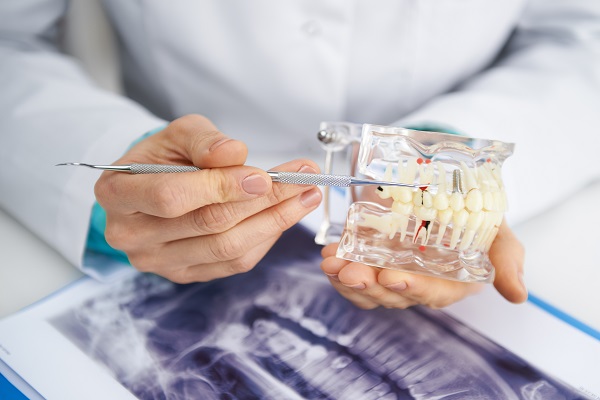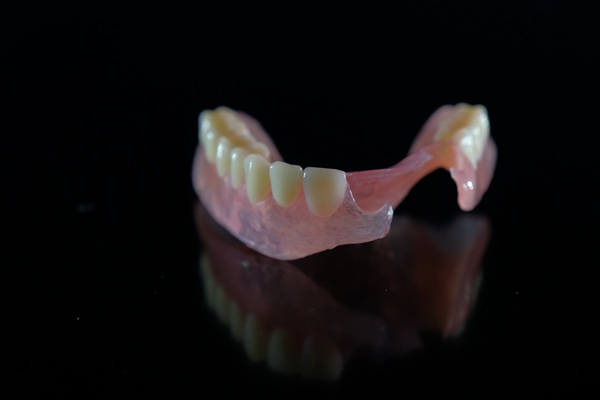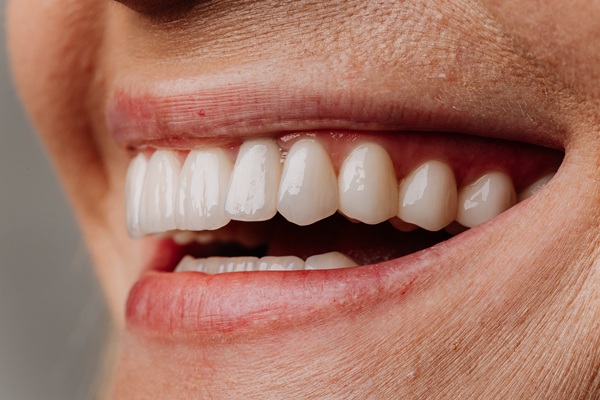Risk Factors for Oral Cancer

There are certain risk factors for oral cancer that are important to be mindful about. Along with routine oral cancer screenings from your dentist, it is encouraged to check for any early signs of oral cancer every so often, especially if you meet one or more of the criteria for being at higher risk.
Oral Cancer Risk Factors
By understanding these risk factors, you can better prepare yourself and take the necessary precautions to minimize the chance of developing the condition. The following are five of the more notable risk factors that indicate a person might be at higher risk of oral cancer.
Family history
There is a hereditary component to oral cancer, which means there seems to be an indication that a person has a greater chance of developing the condition if another member of their family had it in the past. Of course, there are many contributing factors to the development of oral cancer, but it is encouraged to visit the dentist for an oral cancer screening if oral cancer runs in the family.
Tobacco
Tobacco is believed by many experts to be the most notable risk factor of oral cancer, and there seems to be a strong correlation between the use of tobacco in any form and cancer of the cheeks, gums, lips, head and neck. Subsequently, most dentists encourage patients who smoke to try and defeat the ugly habit.
Alcohol
Alcohol also puts people at an increased risk of developing oral cancer. Of course, having a glass of wine with dinner is not a bad thing. The frequent consumption of large amounts of alcohol, however, is very detrimental to long-term health and may lead to the onset of oral cancer.
Sun exposure
Many studies suggest there is also a link between prolonged sun exposure and oral cancer, particularly cancer of the lip area. Similar to tobacco and alcohol use, minimal levels of sun exposure do not contribute to oral cancer. However, dentists encourage patients to protect themselves from UV radiation when outside for prolonged periods of time.
HPV
The HPV virus, otherwise known as the human papillomavirus, also puts people at a higher risk of developing oral cancer, particularly cancer in the tongue or throat. HPV is most commonly transmitted through sexual activity, and it is important to reduce the risk by practicing safe sex and limiting the number of sexual partners.
Visit a dentist for an oral cancer screening
An oral cancer screening is a great way to detect the earliest signs of oral cancer, which allows dentists and doctors to start treatment as soon as possible if cancer does exist. On the other hand, ruling out cancer allows people to live a more relaxed life, knowing they are free of oral cancer. If you are interested in learning more about oral cancer risk factors or would like to schedule a time for an oral cancer screening, consult with us today and find out how we can help.
Request an appointment here: https://babylonsmiles.com or call Edward Zeva D.M.D. at (631) 773-1094 for an appointment in our Babylon office.
Check out what others are saying about our services on Yelp: Read our Yelp reviews.
Recent Posts
Partial dentures should fit comfortably, but there may be times when they need a slight adjustment. This can occur for a variety of reasons, such as the shifting of natural teeth or periodontal changes. The dentist can check on the fit and comfort of the partial dentures with every check-up visit and make adjustments when…
Dental veneers enhance the smile with a blend of beauty, efficiency, and durability. These thin shells bond to the front of teeth to correct chips, stains, gaps, and minor misalignment with precision. But like any dental treatment, there are some trade-offs to consider. Weighing the pros and cons of veneers can help patients decide whether…
Dental bonding is a minimally invasive way to enhance or repair the smile. Whether the issue is staining or a minor crack, bonding can be a quick and effective way to address it. Learning more about this common dental service can help you determine whether it is the best option for restoring your smile. Dental bonding…
Tooth-colored fillings are popular for restoring teeth affected by cavities and minor damage. These fillings blend with natural teeth, making them an attractive and durable option for patients of all ages. Unlike traditional silver fillings, they offer a more natural appearance without compromising strength.Tooth-colored fillings contain a composite resin material that contains a blend of…


